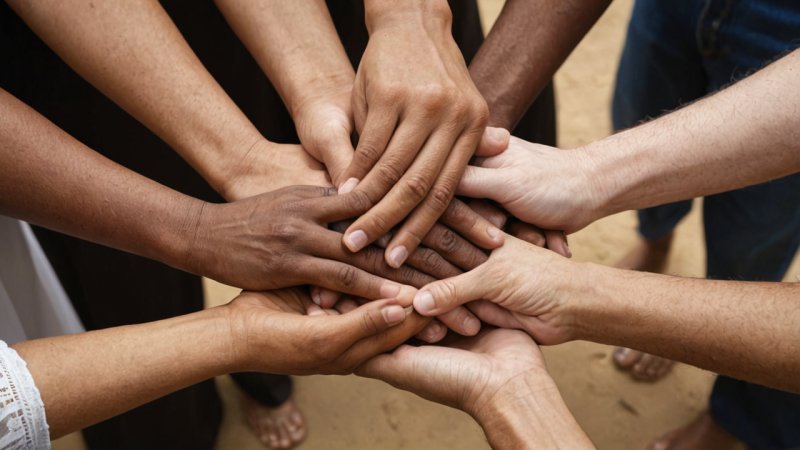Justice is a fundamental concept that transcends cultures, societies, and religions. While the definition of justice may vary from one faith tradition to another, the pursuit of justice is a common thread that unites them. This article explores how various faith traditions approach the concept of justice, examining their teachings, practices, and the implications of their beliefs in contemporary society. By understanding these perspectives, we can gain insights into the role of spirituality in advocating for social justice and how individuals can engage with these teachings to effect positive change.
Understanding Justice in Different Faith Traditions
Justice can be defined as the moral principle determining just conduct, fairness, and the administration of the law. Each faith tradition approaches this concept from unique angles, rooted in their sacred texts, teachings, and cultural contexts. Below, we explore how major world religions interpret justice.
Judaism
In Judaism, justice is deeply embedded in the Torah and the teachings of the prophets. The Hebrew word for justice is "tzedek," which encompasses righteousness, fairness, and moral integrity. The Torah emphasizes the importance of social justice, instructing followers to care for the marginalized, including the widow, orphan, and stranger. One of the most notable commandments is "Tzedek, tzedek tirdof" (Deuteronomy 16:20), which translates to "Justice, justice shall you pursue." This call to action emphasizes the necessity of striving for justice in all aspects of life, reflecting a divine mandate to uphold fairness and equity.
Christianity
Christianity places a strong emphasis on justice as an expression of God's love and righteousness. The teachings of Jesus Christ highlight the importance of compassion, mercy, and advocacy for the oppressed. In the New Testament, Jesus frequently speaks about justice, urging his followers to care for the least among them (Matthew 25:40). The concept of "agape"—selfless love—serves as a foundation for Christian social justice, motivating believers to act against injustice and support the marginalized. Additionally, many Christian denominations actively engage in social justice movements, advocating for human rights and addressing systemic inequalities.
Islam
In Islam, the concept of justice is paramount and is rooted in the teachings of the Quran and the Hadith. The Arabic word for justice is "adl," which signifies fairness and balance. The Quran explicitly commands believers to uphold justice, stating, "O you who have believed, be persistently standing firm in justice, witnesses in justice" (Quran 4:135). Islamic teachings encourage followers to act justly in all dealings, whether in personal, social, or economic contexts. The principles of social justice are further reflected in the practice of zakat (charitable giving), which obligates Muslims to support the needy and promote equitable distribution of wealth.
Buddhism
Buddhism approaches justice through the lens of compassion, mindfulness, and the interconnectedness of all beings. The concept of "right action" in the Noble Eightfold Path emphasizes ethical conduct and the importance of non-harm (ahimsa). Justice in Buddhism is not merely about retributive measures but focuses on restorative practices that seek to heal and reconcile. The teachings of the Buddha encourage followers to cultivate compassion and understanding, which can lead to a more just society. Additionally, Buddhist organizations often engage in humanitarian efforts, promoting peace and social equity.
Hinduism
Hinduism offers a multifaceted view of justice, rooted in the principles of dharma (righteousness) and karma (the law of cause and effect). The concept of dharma encompasses ethical duties and responsibilities that promote social harmony and justice. Hindu texts, such as the Bhagavad Gita, emphasize the importance of acting according to one's dharma, which may involve standing up against injustice. The caste system, while historically significant, has faced criticism within modern Hinduism, leading to movements advocating for equality and social justice.
The Role of Faith in Social Justice Movements
Faith traditions have played a significant role in shaping social justice movements throughout history. Leaders inspired by their religious beliefs have championed causes such as civil rights, poverty alleviation, and environmental protection. Below are examples of how faith has inspired social justice initiatives.
Faith-Based Activism
Many social justice activists draw upon their faith to motivate their actions. For instance, Martin Luther King Jr. was profoundly influenced by his Christian beliefs, advocating for civil rights through nonviolent resistance. His sermons often invoked biblical teachings, emphasizing love and justice. Similarly, figures like Mahatma Gandhi integrated Hindu principles of nonviolence and justice into their activism, inspiring movements for independence and social equity.
Interfaith Collaboration
In recent years, interfaith collaboration has emerged as a powerful approach to addressing social justice issues. Various religious groups come together to advocate for common causes, such as climate change, refugee assistance, and poverty alleviation. Organizations like the Interfaith Youth Core and the United Religions Initiative exemplify how diverse faith traditions can unite to promote peace and justice.
How Individuals Can Get Involved
Engaging with faith traditions to promote justice can take many forms. Here are some actionable steps individuals can take to get involved:
Educate Yourself
- Read sacred texts and teachings from various faith traditions to understand their perspectives on justice.
- Participate in workshops or seminars focused on social justice issues and faith-based activism.
Volunteer
- Join local organizations that work on social justice initiatives, such as food banks, shelters, or advocacy groups.
- Participate in community service projects that align with your faith's teachings on justice and compassion.
Advocate
- Use your voice to advocate for policies that promote justice and equality within your community.
- Engage in peaceful protests or campaigns that align with your values and beliefs.
Build Bridges
- Participate in interfaith dialogues to foster understanding and cooperation among different faith communities.
- Support initiatives that promote inclusivity and diversity in social justice efforts.
Current Global Issues and Faith Perspectives
As we navigate an increasingly complex world, several pressing global issues demand attention. Faith traditions offer unique insights into these challenges, often guiding their followers toward action.
Poverty Alleviation
Poverty remains a significant global issue, affecting millions of people worldwide. Many faith traditions emphasize the moral imperative to care for the poor and marginalized. Faith-based organizations are at the forefront of providing humanitarian aid, advocating for systemic change, and supporting sustainable development initiatives.
Climate Change
The environmental crisis poses a significant threat to justice and equity. Many religious leaders and organizations have responded by promoting stewardship of the Earth, advocating for sustainable practices, and calling for action to protect vulnerable communities disproportionately affected by climate change.
Human Rights
Human rights violations continue to occur in various forms, from discrimination to violence. Faith traditions often speak out against injustice, emphasizing the inherent dignity of every individual. Interfaith coalitions work to combat human rights abuses and promote peacebuilding efforts globally.
Conclusion
The quest for justice is a deeply spiritual journey that transcends individual faith traditions, uniting people in their shared commitment to create a more just world. By understanding how different faiths approach justice, we can draw inspiration and guidance for our actions. Whether through education, volunteering, or advocacy, individuals can engage with their faith traditions to address pressing social issues. Ultimately, the pursuit of justice is not just a religious obligation but a collective responsibility to foster compassion, equity, and understanding in our world.






